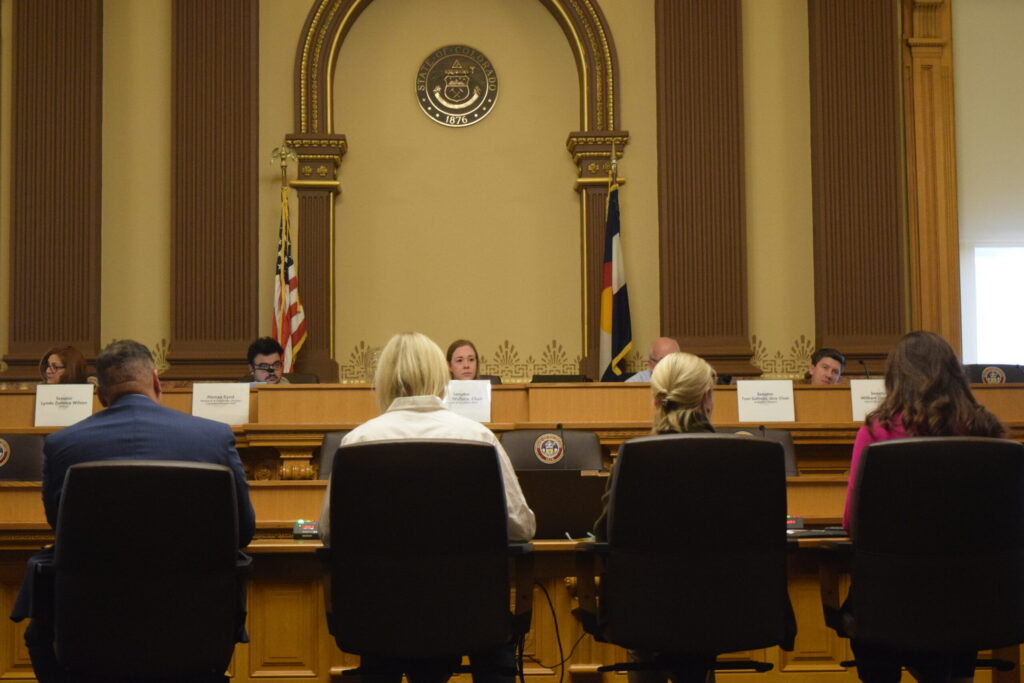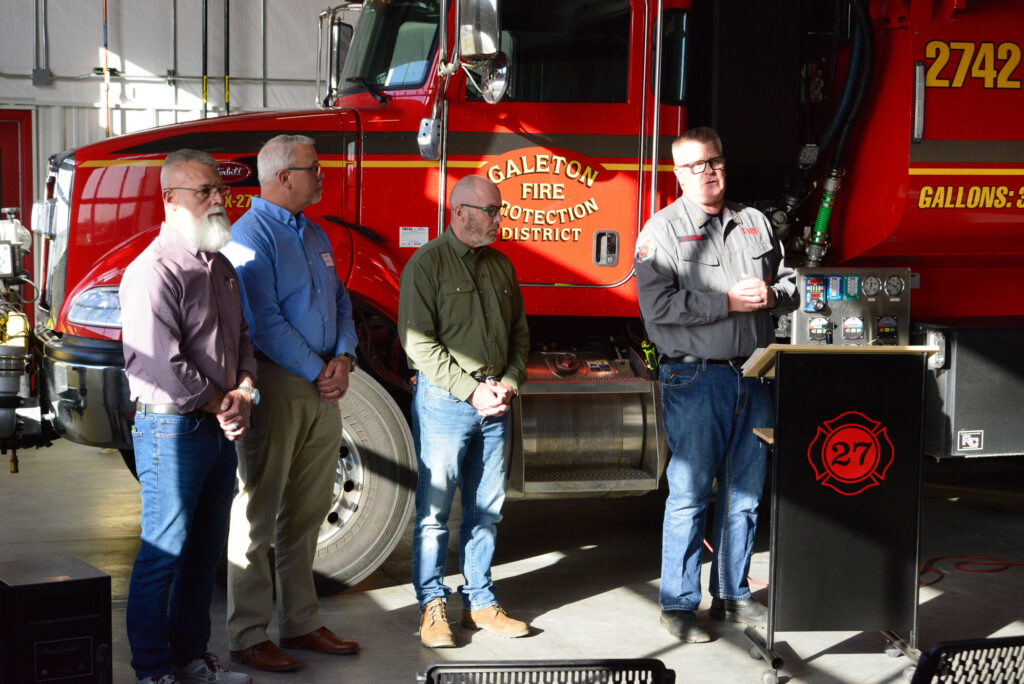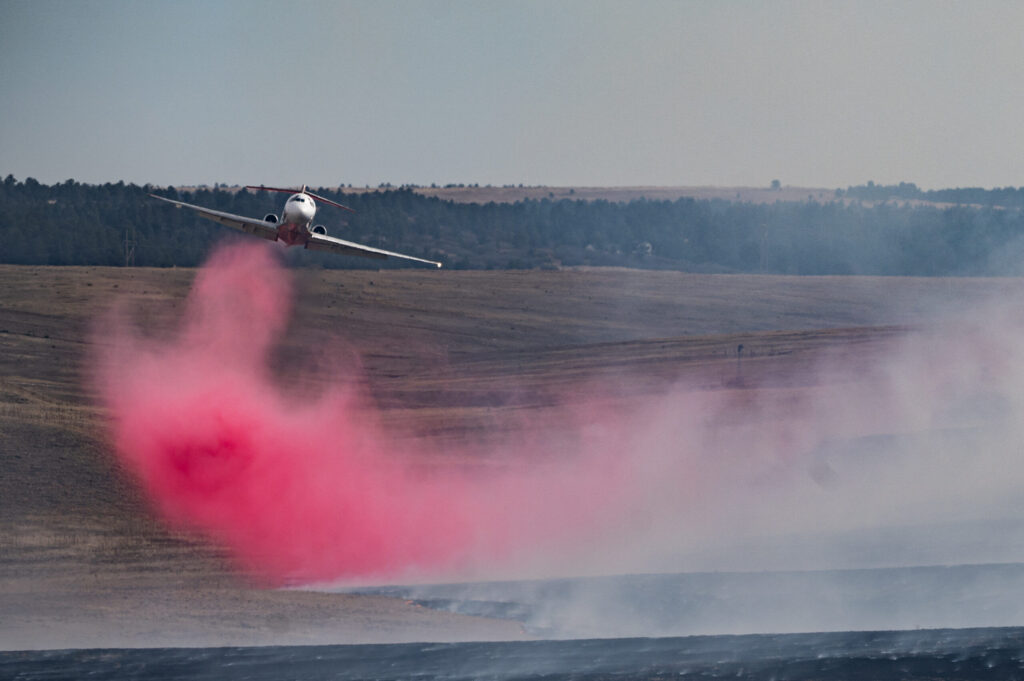DIA to cut flights until government shutdown ends
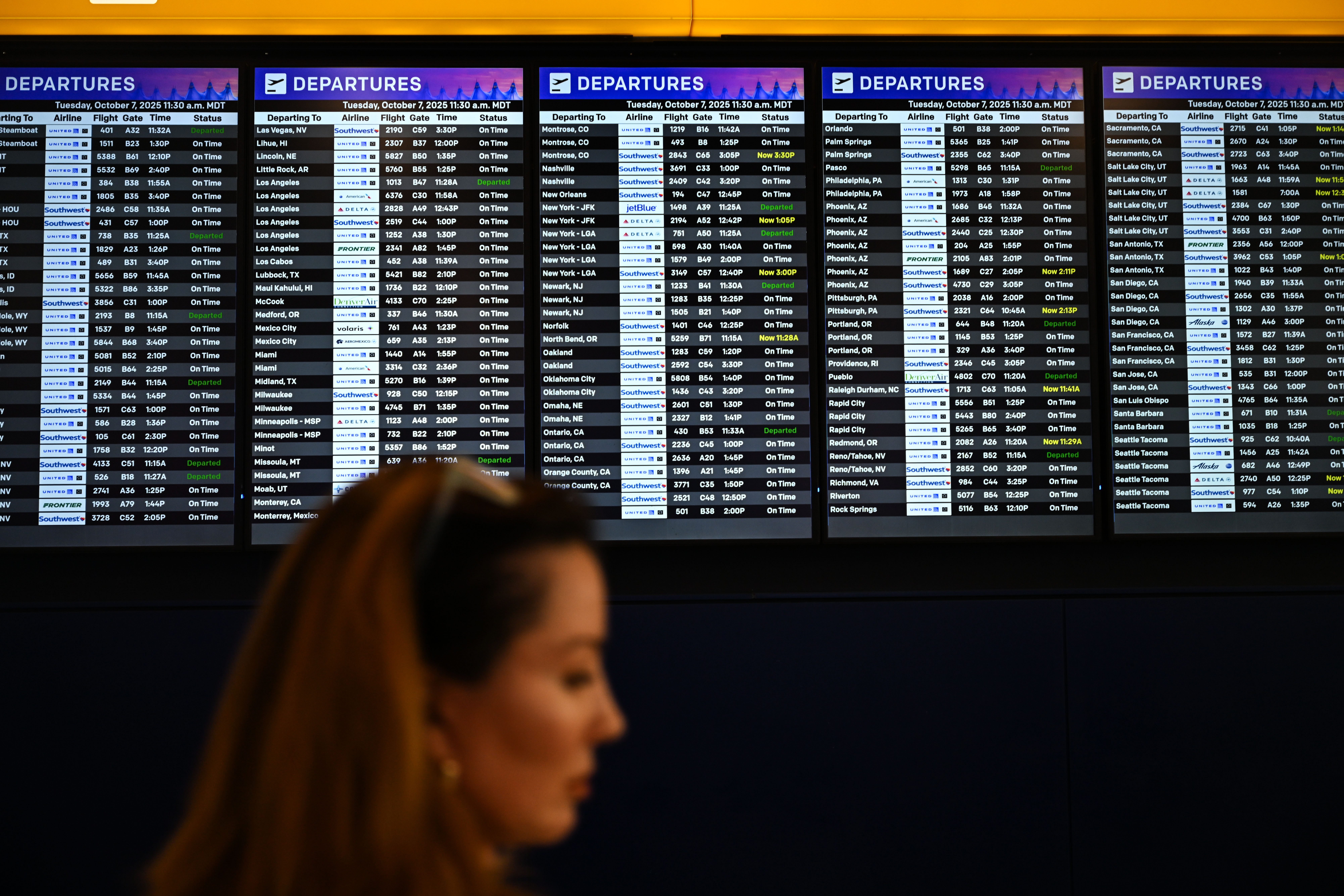
Denver International Airport will reduce its flights by up to 10% while the government shutdown persists.
The news comes after the Federal Aviation Administration announced Wednesday that it would be reducing air traffic across 40 “high-volume” markets, as air traffic controllers have become increasingly strained amid the shutdown.
DIA is on that list.
Reductions are expected to begin Friday, just days after U.S. Transportation Secretary Sean Duffy said there would be “chaos in the skies” if air traffic controllers miss another paycheck.
Some airports have already seen hours-long delays, as the FAA slows or stops traffic any time a control tower is short-staffed.
U.S. airlines began canceling hundreds of flights on Thursday.
More than 760 planned Friday flights were cut from airline schedules, according to FlightAware, a website that tracks disruptions. That number, already four times higher than Thursday’s daily total, is likely to keep climbing.
The FAA said in its official order published Thursday evening that the reductions will start at 4% on Friday and ramp up to 10% by Nov. 14. They will be in effect from 6 a.m. to 10 p.m. local time and impact all commercial airlines.
The announcement comes a day after DIA asked the FAA if it could use airport revenue to pay the salaries of its air traffic controllers during the shutdown. The airport officials also said they would request reimbursement from the federal government for those wages once the shutdown is resolved.
“This is a critical time for travel both here at DEN and around the country,” Phil Washington, the airport’s chief, said in a Wednesday statement. “Staffing issues are already being identified at a number of airports, impacting travel. As the shutdown drags on, air traffic controllers, in particular, are being stressed unnecessarily.”
When asked for a comment on the announcement and its potential impacts Wednesday morning, representatives from DIA said that all inquiries should be directed to the FAA or to individual airlines, as the airport does not manage flight operations.
Several airlines released statements about how the announcement may impact their services.
United Airlines said all customers traveling during this time are eligible for a refund without penalty, even if their flight isn’t affected. Delta adopted the same policy for all flights through impacted airports.
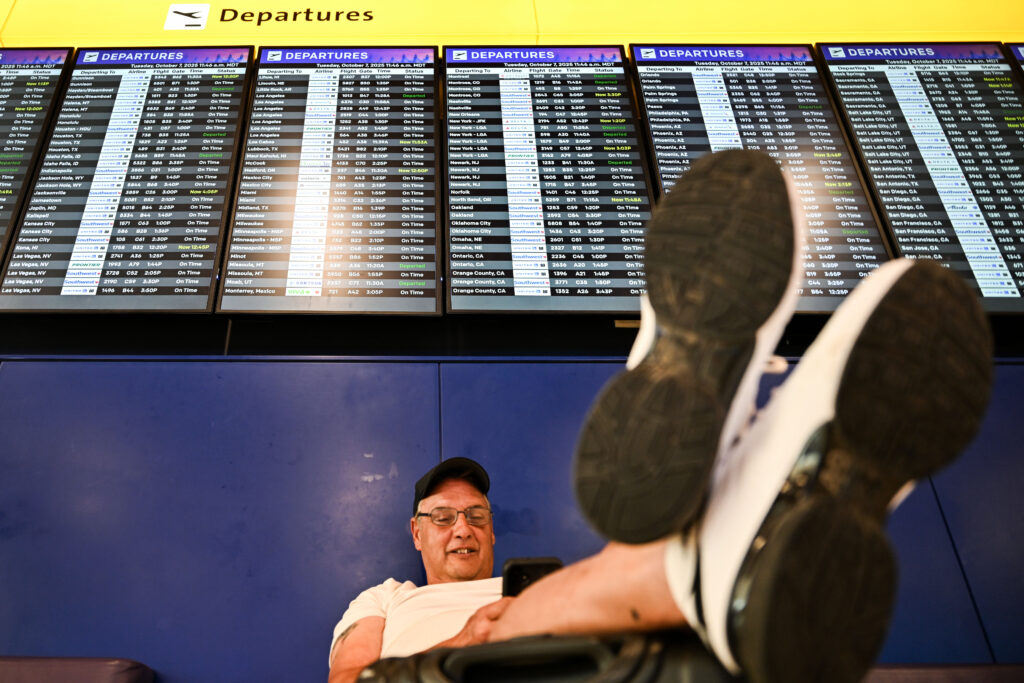
Southwest Airlines, American Airlines and Alaska Air said their customers could receive refunds for cancelled flights and Frontier, which is based in Colorado, noted customers with domestic flights cancelled or delayed more than three hours and international flights cancelled or delayed more than six hours could receive a refund.
In an employee memo published Wednesday night, United Airlines CEO Scott Kirby said the airline’s long-haul international and hub-to-hub flying will not be impacted by the reduction. United Airlines has a hub at Denver International Airport and amounts for most of the air traffic at the facility.
United began cancelling 4% of its flights per day through Sunday in cooperation with and guidance from the FAA, a spokesperson confirmed. That rate amounts to about 20 round trip flights per day, most of which will be United Express flights.
The airline used technology to find flights that would be cancelled with the least possible disruption to customers, and those affected by the changes today were immediately notified of the changes, the spokesperson added.
Passengers should check their airlines’ respective websites or mobile apps flight updates when looking for the latest information on their flight status. In their statements, all the airlines said they plan to have real-time updates for all delays and cancellations, including those affected by the staffing shortage.
Meanwhile, people are watching car rental prices.
Nearly a dozen rental car agencies are operating out of Denver’s airport. While it’s not clear exactly how many total vehicles are available at DIA, its current rental car program uses 12,760 parking spaces.
Historically, when airlines experience widespread delays and flights are canceled, rental car companies often see a surge in demand, as passengers seek alternatives to continue their travel plans.
As a result, prices for rental cars can surge dramatically, especially since many companies employ dynamic pricing or yield management strategies.
If car companies have an excess of vehicles on their lot, they will often offer discounts to get them on the road. However, local events, such as weather, flight delays, and even off-airport events like technology disruptions, major league sports games and concerts, can trigger price hikes.
For example, in 2022, when a major blizzard blew across the Midwest, thousands of Southwest Airlines passengers were left stranded as the airline struggled to rebook and accommodate weary travelers.
Some travelers reported that the price for rental cars almost quadrupled at the time.
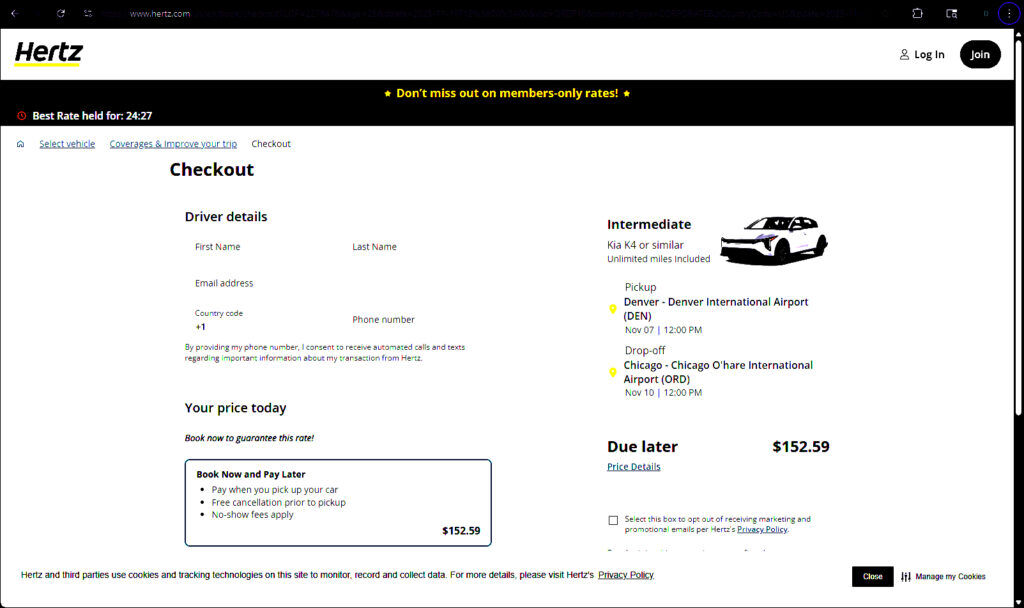
“It’s a dynamic situation, a lot of uncertainty, and to an extent, you know, we’re all asking the same questions about how changes in the travel system affect other parts of the travel system,” AAA Regional Director of Public Affairs Skyler McKinley told The Denver Gazette on Thursday.
The good news, said McKinley, is that the system will reward travelers for their flexibility.
“So, the airlines are rolling out announcements that they’re waiving cancellation fees, they’re allowing flexible changes, they’re offering full refunds, they’re adjusting their schedules — the airlines have stepped up to enable travelers to make the best choice without it being frustrating or confusing,” he said.
McKinley said that AAA is advising travelers who may want to avoid headaches at the airport to consider driving.
“That’s (driving) what we’re advising folks to do if they’re able, and that might put upward pressure on the rental car market,” he said. “Conversely, though, it might also put downward pressure on the rental car market, because folks might, instead, opt to just drive long distances in their own vehicle, rather than driving or flying somewhere and then picking up a rental car.”
While McKinley said AAA is not yet certain, he said that it is reasonable to expect price increases on travel due to higher demand for fewer flights.
“My advice to travelers is that an ounce of preparation is worth a pound of cure,” he said. “Stay informed, be engaged, download your airline’s app – look for updates at your departing airport but also the airport you’d be flying to. The more you know, the more you can avoid some of those headaches.”
The Associated Press contributed to this report.








